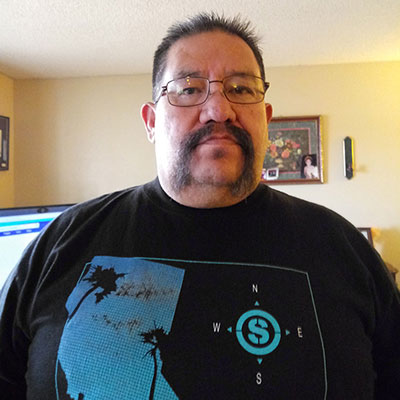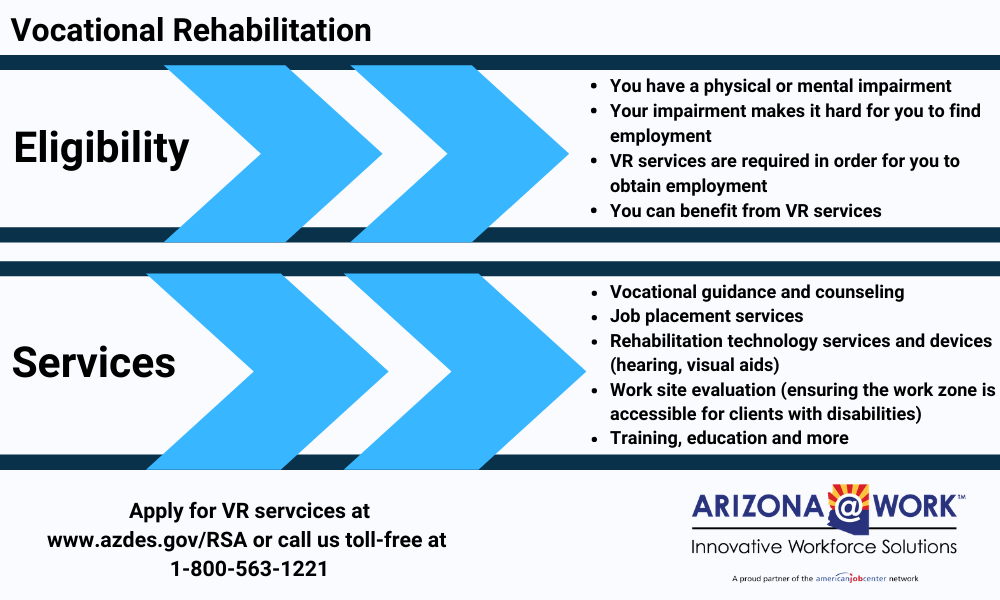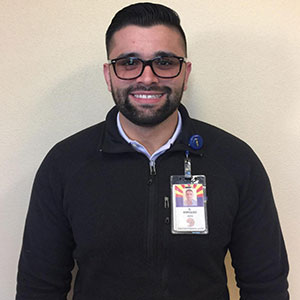Voc Rehab Program Provides Yuma Man Resources to Succeed

Ramon Ramirez
Ramon Ramirez worked as a meat handler and butcher for 30 years, when diabetic retinopathy and glaucoma began to restrict his vision and he developed sensorineural hearing loss. When he had a hard time reading and communicating with customers about their orders, he knew he had to get assistance, so he turned to the DES Vocational Rehabilitation Program (VR).
“A friend of mine who works in my store told me, ‘Hey, you know there’s a program [that can help you],’” said Ramon. “I was going to just apply for disability when I found out I was losing my hearing, and when my friend told me about the program, I started working [with VR].”
The VR program’s mission is to help individuals with disabilities achieve their goals for employment and independence. The program can help individuals with a variety of disabilities, whether physical in nature, or medical, such as Traumatic Brain Injury (TBI).
VR is also able to help individuals who are blind or visually impaired, or deaf and hard of hearing, like Ramon.

Read Vocational Rehabilitation infographic text.
Once in the VR program, Ramirez started working with Daniel Enriquez, a counselor who specializes in assisting blind and visually impaired clients. His job is to find out what his client’s employment goals are, focus on their strengths and guide them in the right direction.

Daniel Enriquez
“He was very worried,” explained Daniel, recalling Ramon’s initial concerns to fix his changing abilities. “He was very stuck on ‘I want to get back, this is not OK.’ Through this process he realized it’s going to be OK. We can adapt, we can work together, you’re not alone, let’s figure this out together.”
Daniel went to the Albertsons where Ramon is employed to inspect his workplace to observe some of the barriers. He also had Ramon participate in a functional capacity assessment with a physical therapist to assess his physical restrictions. After years of carrying heavy items around, there had been extensive wear-and-tear on his shoulders, and it was decided that he could not physically work full-time in his current position. His management was willing to work with him, so he switched over to part-time.
After the assessments, Daniel helped Ramon acquire hearing aids, bioptic glasses to improve his vision at work and while driving, and a RUBY magnifying device to help him read small print. Ramon said that although he won’t be able to get back to how he used to be, he’s happy with how the tools are helping him. Daniel still checks-up on him to see if he needs any assistance, more than a year after beginning services.
“As he started getting the devices and training, his attitude started changing, ‘This is OK, I’m going to be OK, I’m going to be able to communicate, things are getting better at home, things are getting better at work,’” Enriquez said.
For more information on the DES Voc Rehab program, please visit https://des.az.gov/vr.
By Ben Flores

